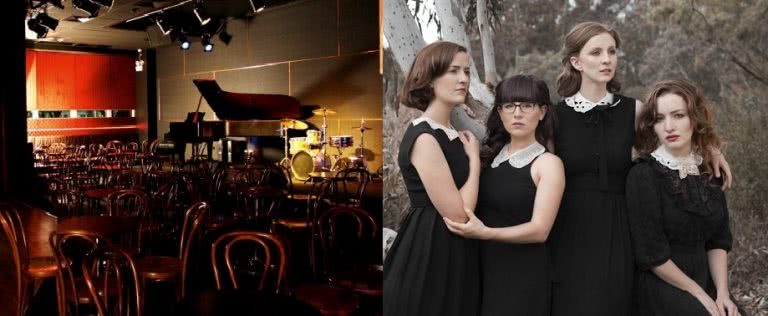Hannah Crofts, a member of Australian band All Our Exes Live In Texas, witnessed an exchange on Facebook that proves some men in the music business aren’t getting the message about sexism. Here’s why.
“I think like many other complaints that women have, you simply have to nod your head and listen with your understanding face on.” – Graham Wood, owner of prominent Australian jazz club, The Ellington, in Perth.
Some of you might have seen Erin Riley’s tweet and subsequent Guardian article about triple j’s Hottest 100 and Chet Faker’s reaction to having his privilege poked. For me, it’s an important article that discusses and highlights the lack of equality in the Australian music industry – why, year after year, women are underrepresented in the countdown and how we can move forward in all areas of the arts.
Vance Joy and Chet Faker went to school together, which means the Hottest 100 has had more winners from St Kevin’s Toorak than women
— Erin Riley (@erinrileyau) January 25, 2016
There were four women in the top 20 of triple j’s Hottest 100 in 2014 and on Tuesday, only three. These are facts and they can’t be argued with. It’s when we question why this happens and how we can fix it that the arguments start.
According to those who have argued against Riley and the gender imbalance, triple j and the music industry share no blame, it’s the voters who autonomously and with absolutely no influence make these decisions.
As Riley explains in her article for the Guardian, “When both men and women invoke the fact the Hottest 100 is based on a popular vote as evidence, it couldn’t possibly be biased, they ignore the role of radio in creating context for music, and the insidious ways privilege influences taste: in play counts, in the inclusion and exclusion of genres, in who is interviewed and how they’re spoken to.”
The funny thing is, the second you bring up male privilege, the reaction always seems to be the same: males jumping straight to the defence “stop hating on white men/it’s not our fault/I deserve everything I have because I work hard”. Suddenly we are man-hating, politically correct, ungrateful, talentless and have sour grapes that we “lack the merit”.

A prominent member of the music community, Graham Wood, has a lot to say about this issue. Graham is an Associate Professor at the Western Australian Academy of Performing Arts, the owner of the largest jazz club in Perth and was previously the Head of Music at WAAPA.
“That is what annoys men so much about this line of argument is they face just as many obstacles, they are just better equipped to deal with them,” he argued on a now-deleted Facebook post I read in response to Riley’s article. For women, this reaction is boring and exhausting.
No-one is saying that you didn’t work hard. We get it. We have all worked hard. But you know what? Women are telling you earnestly that something is wrong and we’re asking for solutions. It’s not your place to speak on top of us and silence us. Women in the music industry are telling you something is wrong. As an influential part of this community, surely your responsibility is to work to tackle this problem.

“You simply nod your head and listen with your understanding face on.”
This is the man that you, as a woman, have to speak to in order to play at his venue, The Ellington. This is a man in a position of significant influence and authority who gives advice to students at the beginning of their musical careers. These comments certainly don’t indicate that a female music student would be treated equally in an educational environment with Graham Wood at the helm.
I, for one, do not support live music venues in Australia that do not support equality, women and diversity. I will never be performing at or attending The Ellington jazz club again and I urge other performers and audience members to do the same.

In Graham Wood’s words, “I’d rather be shot than read that crass rubbish”. Let’s move on from the conversation that women hate men and actually have a conversation about change.


































